In today's fast-paced world, navigating the complexities of publication ethics is crucial for maintaining integrity in research and writing. Many authors may find themselves unsure about the best practices for responsibly sharing their work, especially with the increasing prevalence of digital publication methods. By understanding key ethical considerations, you can enhance the credibility of your research and contribute positively to the scholarly community. Let's delve deeper into the essential components of a publication ethics statement and why it matters for every writer.
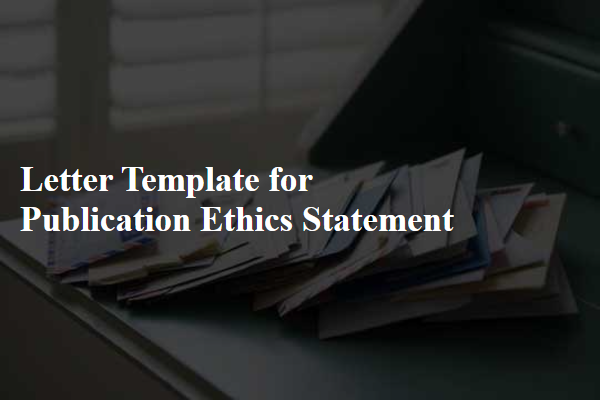
Authorship and contributorship criteria
Authorship and contributorship criteria play a vital role in ensuring integrity and transparency in academic publishing. Authorship should be attributed to individuals who have made significant intellectual contributions to the conception, design, execution, or interpretation of the research work. The International Committee of Medical Journal Editors (ICMJE) outlines four key criteria for authorship: substantial contributions to the study's conception and design, acquisition of data, analysis, or interpretation, drafting the manuscript or revising it critically for important intellectual content, and final approval of the version to be published. Contributors who do not meet all authorship criteria may be acknowledged in the manuscript, reflecting their role in the research process. This framework fosters accountability and fair recognition within the scholarly community, encouraging ethical practices and proper attribution of contributions to research findings.
Data integrity and reproducibility
Data integrity and reproducibility are fundamental pillars of scientific research, ensuring findings are trustworthy and verifiable. High-quality datasets, carefully curated from original sources like experiments or observational studies, should reflect accurate measurements, lack manipulation, and adhere to ethical standards. For instance, in clinical trials, data accuracy (with inclusion criteria specified and adherence to protocols enforced) is crucial for reliable outcomes. Researchers must maintain transparency in their methodologies, allowing for replication by independent teams, thereby fostering confidence in the results. Publishing detailed protocols, including statistical analyses and sample sizes, is essential for reproducibility, particularly in fields like biomedical research, where reproducible results are vital for advancing treatment strategies. Institutions and journals must promote practices that protect data integrity and support a culture of reproducibility, which is pivotal for scientific progress.
Conflict of interest disclosure
Conflict of interest disclosures are essential for maintaining transparency in research publications. Authors must clearly state any financial or personal relationships that could influence their work's outcomes. This includes relationships with funding organizations, commercial entities, or affiliations that may benefit from the research findings. The American Psychological Association (APA) guidelines recommend declaring potential conflicts to ensure the credibility and integrity of the research process. Serious consequences may arise when conflicts are not disclosed, potentially leading to retractions or damage to professional reputations. Adhering to ethical standards fosters trust within the academic community and promotes responsible research practices.
Plagiarism and originality assurance
Publication ethics emphasizes the importance of plagiarism prevention and guarantees originality in scholarly work. Plagiarism, defined as the unauthorized use or representation of another person's work, can severely damage academic integrity and undermine the trust within the research community. It encompasses various forms, including self-plagiarism, where authors recycle their own previously published work without proper citation. To uphold originality, journals and publishers require authors to submit their manuscripts accompanied by a plagiarism disclosure statement. This statement assures that the submitted content is the result of the author's own intellectual endeavor, appropriately credits all sources, and employs established citation practices. Plagiarism detection software, such as Turnitin or iThenticate, may be utilized to assess manuscripts, ensuring they meet the required ethical standards for publication in peer-reviewed journals or conferences. Compliance with these guidelines fosters a responsible research environment, contributing to the overall credibility of published work.
Compliance with ethical guidelines and regulations
Compliance with ethical guidelines is crucial in scholarly publishing. Researchers (individuals conducting systematic investigation) are required to adhere to ethical standards established by institutions and regulatory bodies, such as the American Psychological Association (APA) and the International Committee of Medical Journal Editors (ICMJE). These guidelines ensure the integrity of the research process and the protection of human subjects involved in studies. For instance, obtaining informed consent from participants (individuals contributing data to research) is mandatory, particularly in studies concerning sensitive topics. Additionally, proper citation practices are essential to avoid plagiarism, which is the unacknowledged use of another's ideas or work. Journals, such as the Nature Publishing Group, enforce strict adherence to these principles to maintain scientific credibility and public trust. Breaches of ethical standards can result in retraction of articles, damage to professional reputation, and legal repercussions for researchers.
Letter Template For Publication Ethics Statement Samples
Letter template of publication ethics protocol for institutional submissions.
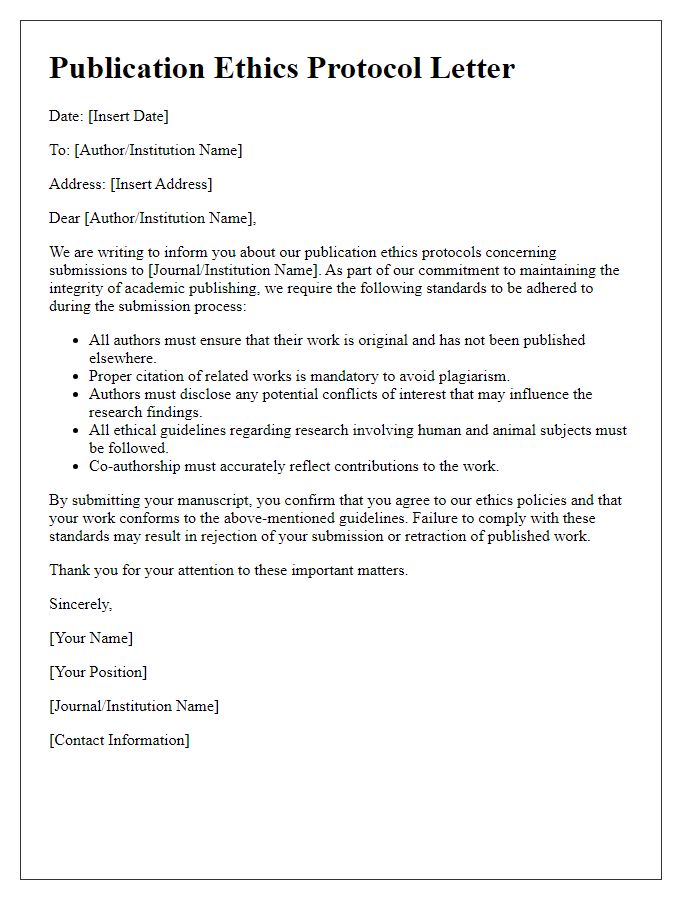
Letter template of publication ethics affirmation for conference proceedings.
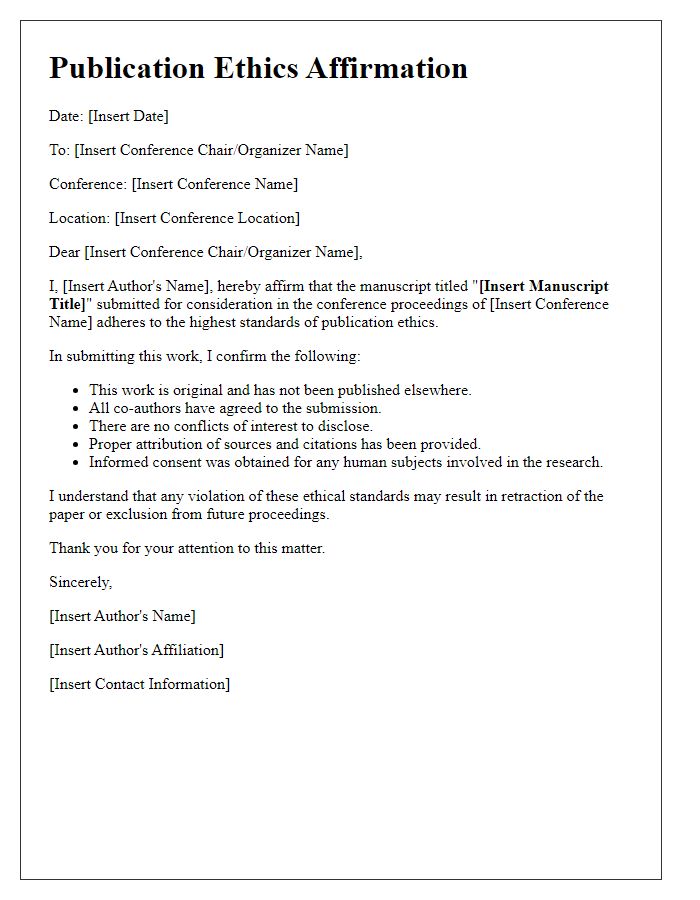

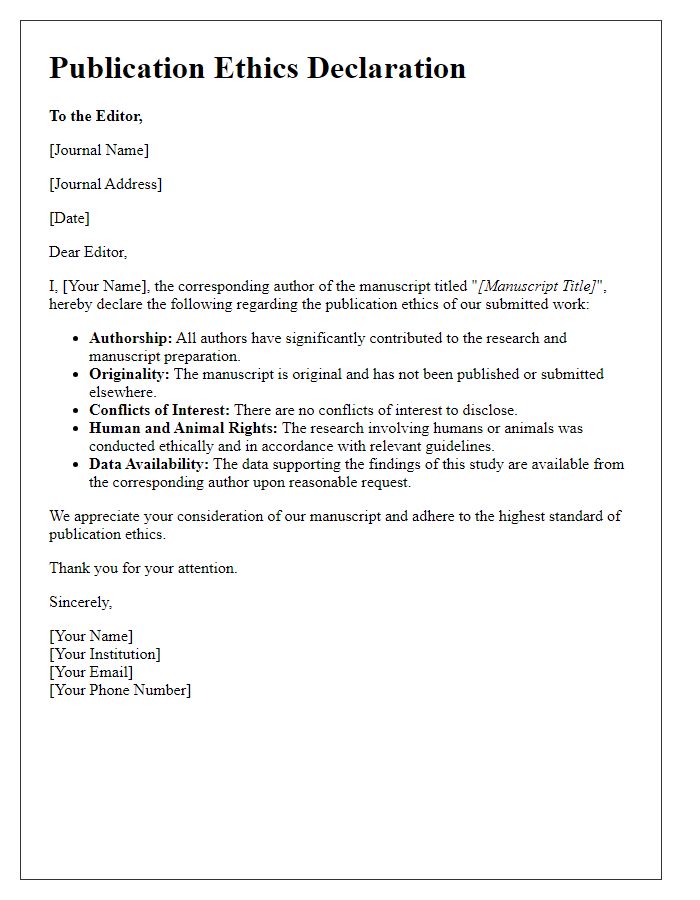
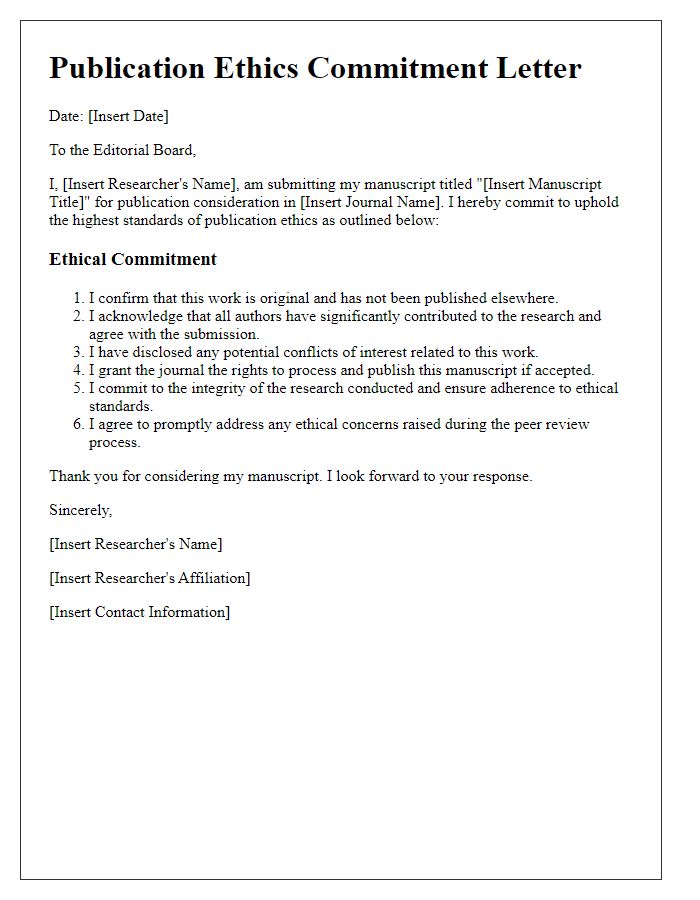
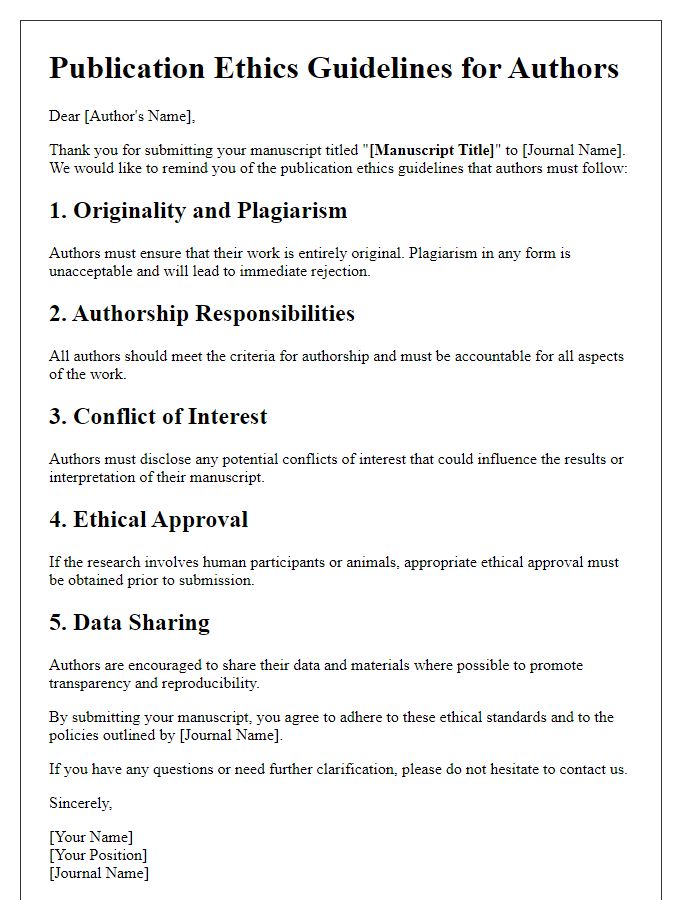
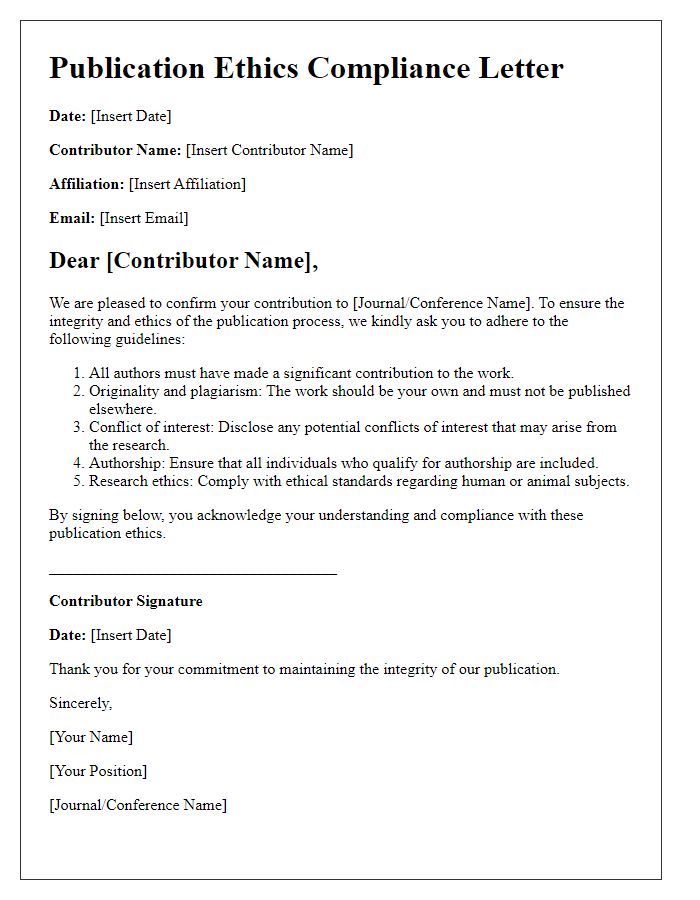
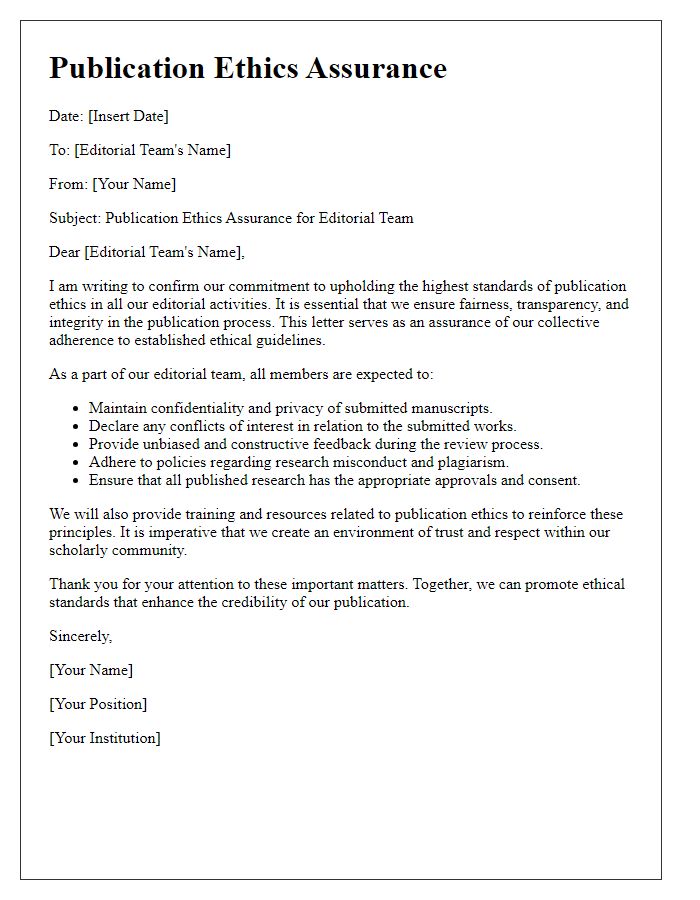
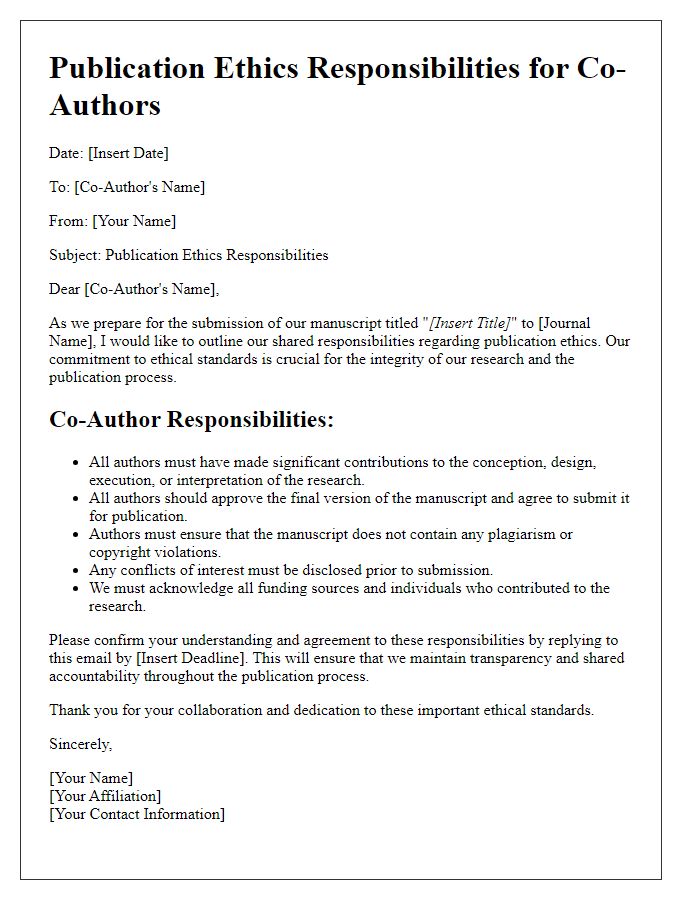
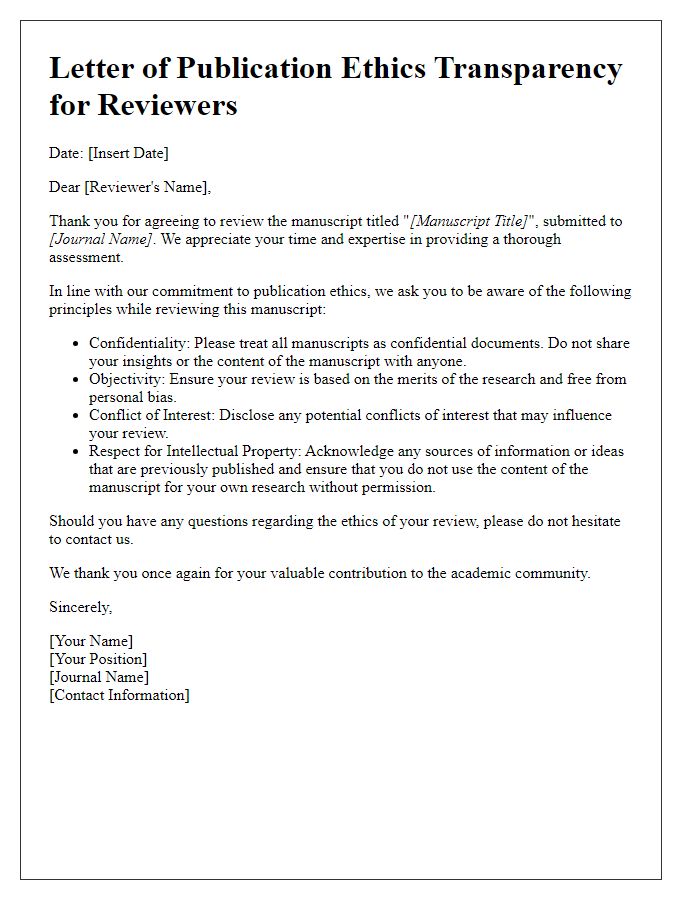
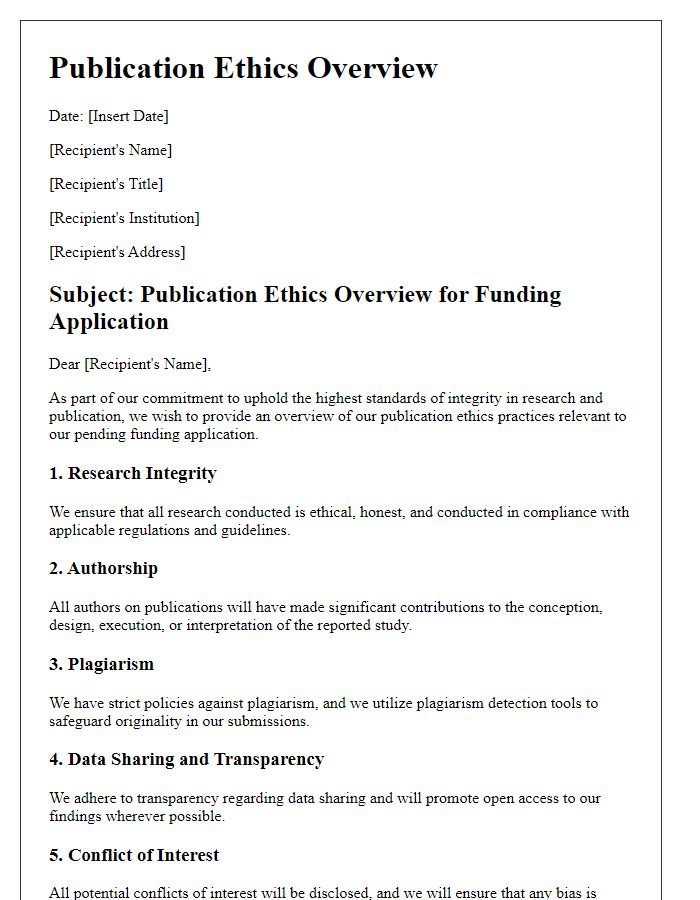


Comments